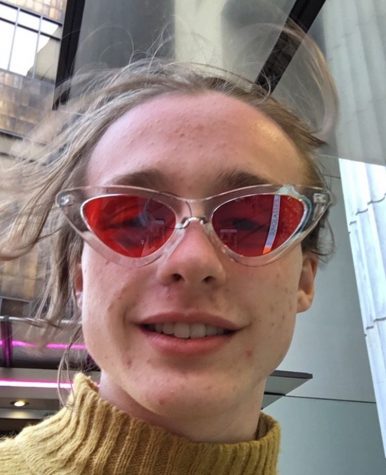Prep Students Speak on Passions
January 8, 2018
Emma Grossman ’20 begins her day at Teen Link by signing into their system, then checking the emails and voicemails sent in. She then starts to call and chat with any callers needing help. Teen Link is a program where teenagers aged 13 to 20 work on outreach to the community to help teens struggling with any issue at hand, including mental health, drugs and alcohol, relationship issues, et cetera, and Emma is a part of the program.
Emma is just one person who is working towards something they are passionate about. Prep students, just like any other, have issues they are passionate about and want to address in modern society. These all relate to the different perspectives, experiences, and ethics that we all carry that make up our moral being. The Panther staff spoke to three Prep students on the issues they are most passionate about and why.
Grossman recounted when she first took on the idea of working for Teen Link: “I had heard a little about it, and my counselor told me that I should volunteer there, so I did just that.” Grossman said “I went to an ASIST (Applied Suicide Intervention Skills Training) just because it interested me and I wanted to learn more. I learned a lot more about suicide and how much it affects people of all ages around the world. I immediately signed up for training and with every day I got more and more passionate about Teen Link.”
When asked why, Grossman said, “I think you do see the effects of what you do immediately. People underestimate how much calling or chatting in can affect someone’s life, but I get to see that effect first hand” Grossman continued. “I think a huge piece is the community of people at Teen Link, who are all equally as passionate about it.”
Henry Hazzard ’18, when asked what issue he was most passionate about, took a much more global approach to the topic. “I care about the problems Africa faces. Africa is a rich continent, but colonization created the problems this continent faces. The Democratic Republic of Congo is one of the richest countries in the world in terms of resources, but it has a shockingly low GDP.”
Hazzard referred to the colonization of Africa by European forces, which caused issues for the indigenous people of Africa and largely disrupted the economic and political systems already put in place, which only caused turmoil.
Addressing the systematic oppression of the indigenous people, Hazzard added, “Racism is not only a prevalent issue in the US, but all around the world. Black people are a racial group discriminated against in many countries like South Africa. If Africa’s precolonial wealth were to be restored, a lot of black people in our world would have the tools to succeed.”
Hazzard continued, “A lot of charities and governmental organizations that work toward empowering Africa are based in Western countries, not Africa. If there were more grassroots organizations in Africa, the continent would be lifting itself out of the many problems. Countries should not view Africa as some poor continent that they are supposed to save. Africa is capable of saving itself, we just need to give it the assets to do so.”
Erin O’Driscoll ’18 brought up an issue that is hotly contested in the Senate and the classrooms alike; sexual assault prevention. When asked why, she responded, “I think sexual assault is an issue that isn’t addressed as much as it should be. It’s something that too many people experience and go through. The worst part is that it’s completely preventable.”
O’Driscoll feels education is the best approach on addressing sexual assault. “Its most important to educate people on what sexual assault is and how they can take care of themselves. It needs to be talked about more and fully recognized as a prevalent problem in today’s society. We need to report about it more, make resources available to people, and really address it at its core in the health classes in our education system” She says.
While all of these these are important, they are only three issues from three people, and not representative of the whole student body. Grossman had this to say, “I really feel like it’s important for people to go out and take action on issues they feel are important. This can be by small actions like volunteering or just speaking up when it’s a topic of conversation. So yeah, go out and make your voice heard about what you feel passionate about. Otherwise, who else will?”


